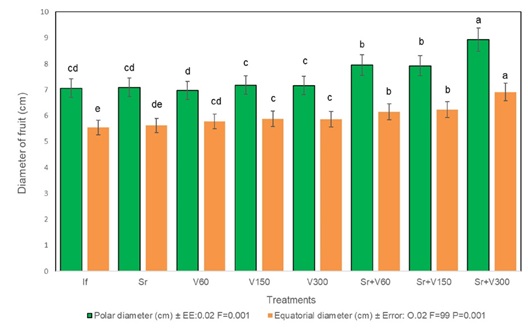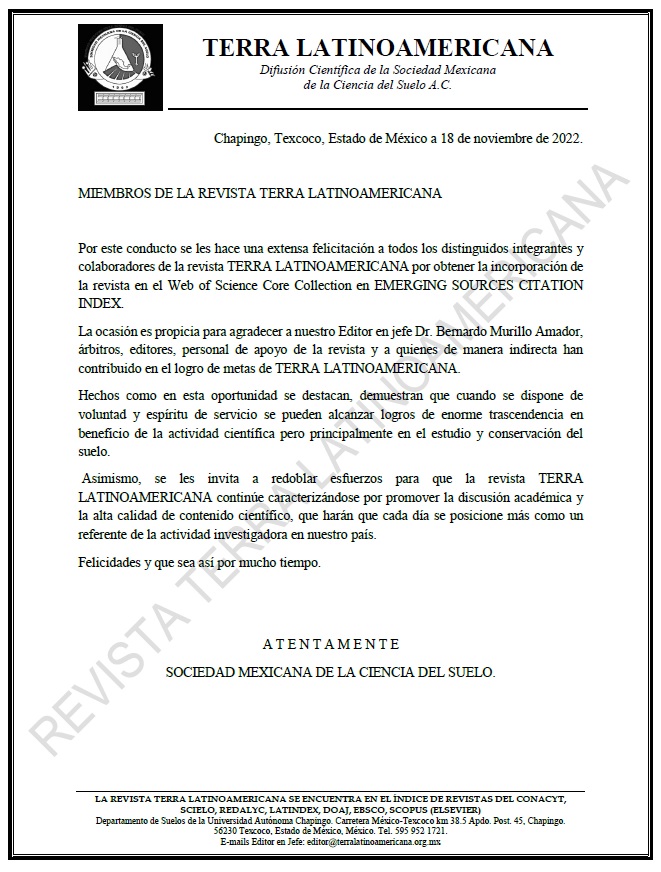Ef fect of a Marine Bacterium and Vermicompost on Antioxidant Properties and Fruit Quality of Solanum lycopersicum L.
DOI:
https://doi.org/10.28940/terra.v42i0.1845Keywords:
lycopene, Stenotrophomonas rhizophila, vitamin C, yield per plantAbstract
The present study aimed to evaluate caporal hybrid tomatoes’ antioxidant capacity and fruit quality under greenhouse conditions when applying a combination of a marine bacteria (Stenotrophomonas rhizophila) and dif ferent doses of vermicompost. A random block design was used, with 12 treatments: Inorganic fertilized (IF, control treatment), S. rhizophila (Sr), 60, 150, and 300 g of vermicompost (V), and the combination of Sr+V (Sr+V60, Sr+V150, and Sr+V300), with 20 repetitions each. Plant height, stem diameter, number of flowers, number of fruits, colony-forming units (CFU), polar and equatorial diameter of the fruit, fruit firmness, titratable acidity, total soluble solids (TSS), lycopene, vitamin C, fruit weight and yield per plant were evaluated. These were analysed with the Statistical Package and the Tukey mean test with a significance level of 0.05%. The analysis showed significant dif ferences for all the variables evaluated with Sr+V300 as the best treatment. It is concluded that the use of bacterium isolated from marine environments in combination with vermicompost favors the antioxidant contents and fruit yield being an alternative use in this vegetable.
Downloads
















